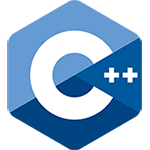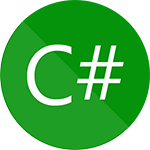Programming Language Suggester
Answer the Questions below to determine what programming language you should start learning.
Thanks, ! Based on your answers, you would benefit by learning:
C++

A successor to C, the idea behind C++’s development was to add higher-level paradigms to C but also keeping the low-level qualities present in it. Since its inception, C++ has evolved quite a lot to include object-oriented, generic, and functional features. C++ is a compiled language that has many compilers to work on many different platforms, thus extending its usability.
Given its predecessor, C++ boasts notable computing performance, which is the reason why it’s mostly used for system programming and embedded systems. Thus, it’s often used to create device drivers, game engines, image and audio software, telecommunications networks, and interpreters.
C#

Just Like C++, C# is another programming language built on top of C where the major addition was object-oriented capabilities. C# is closely related to Microsoft’s .NET framework since it was initially developed by the Redmond giant as part of its .NET initiative and has now become the primary language for .NET programming.
C# is another language that can be used to build close to everything you can think of but it’s perfectly suited to build Windows desktop applications and games. Additionally, you can use it to create web apps as well as mobile applications which can later be used on virtually any mobile device through cross-platform tools like Xamarin.
Ruby

According to its own official website, “Ruby is a language of careful balance”. They can certainly claim that since the language combines parts of Perl, Smalltalk, Eiffel, Ada, and Lisp to come up with a balanced mix between functional and imperative programming. This interpreted, high-level, general-purpose programming language is highly flexible since developers can remove or redefine any part of Ruby.
Ruby is mostly used for web application development, especially because of Ruby on Rails, a very popular development framework that provides an MVC (Model View Controller) architecture and encourages the use of web standards. Ruby’s uses don’t end there, though, as it can also be used for data analysis, prototyping, and proof of concepts.

Python
A lot of beginners that have gone online to ask which programming language should they learn first hear Python as the first answer. That’s because the language has a strong emphasis on code readability, ease of use, and flexibility. All of that means that beginners can quickly learn it and start working on pretty much any application they can think of.
Though Python can be used to build everything from business applications to games, there are some strong suits for it. For one, the language is frequently used for data analysis, scripting, and scientific research, mainly because it includes a robust set of tools for that. But Python is also great for web app development and even for the creation of AI-based applications.
Java

Java often appears at the top of programming languages rankings thanks to its huge popularity, rooted mainly in one thing: its “write once, run anywhere” (WORA) principle: any compiled Java code can run on any platform that supports Java without having to recompile it first. That’s possible thanks to the Java Runtime Environment (JRE), which runs on a Virtual Machine to provide it with that cross-platform capabilities.
Combined with the fact that Java is a general-purpose language, that makes it perfect for virtually any development project. In fact, Java is used for a lot of things, from Android apps and web apps to games, big data tools, and even scientific platforms.
Objective-C

Yet another high-level programming language based on C, Objective-C took it a little further by adding features and syntax from Smalltalk. Thus, we can say it’s a superset of C since any C code can run perfectly in an Objective-C compiler. Objective-C was initially developed as a way to add object-oriented programming to C but has taken a life of its own by now.
Thanks to its capabilities, Objective-C was the main language for developing Mac OSX and iOS applications (in fact, you needed to learn it to create any apps for those systems). With the introduction of Swift by Apple, Objective-C isn’t the only alternative anymore, though it’s still an interesting option.
JavaScript

JavaScript has been a fundamental part of our everyday lives for quite some time now, simply because it’s one of the essential pillars of most websites (along with HTML and CSS). Through JavaScript, web pages can dynamically apply changes to styles, animate menus, validate data entered into a form without refreshing, and much more. Javascript also works for web and mobile app development, as well as server applications and games.
Most modern websites use JavaScript in some sense or another to control client-side page behaviors. And though it’s mostly a programming language for front-end development, it can be used on the server side as well (with Node.js).
Back to my portfolio.